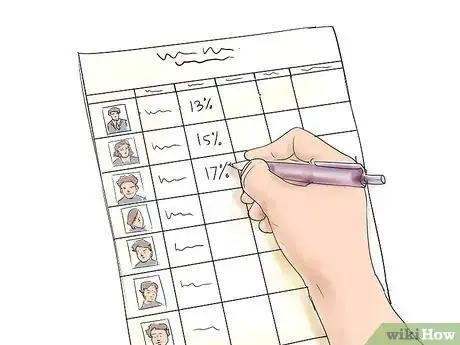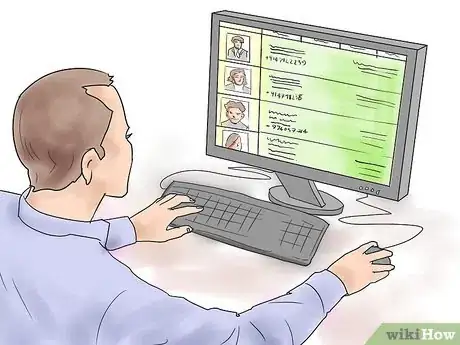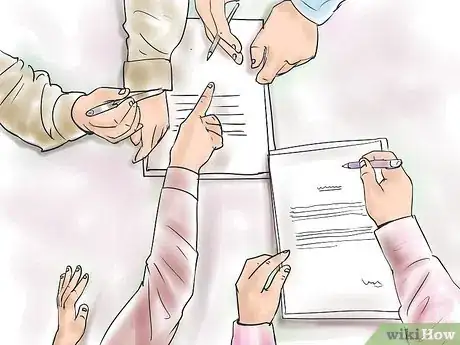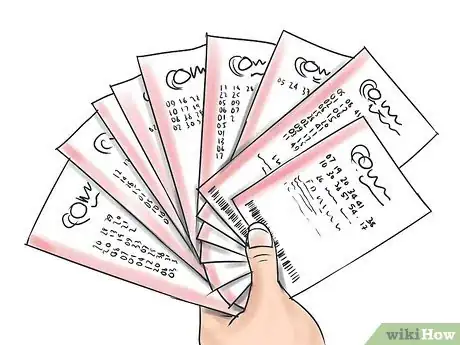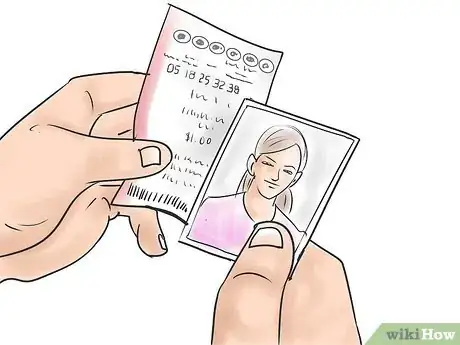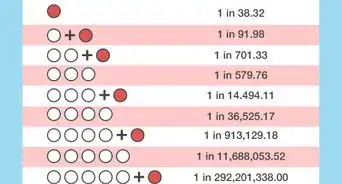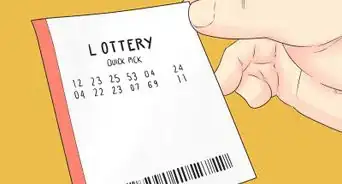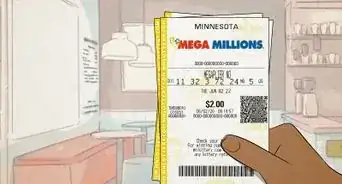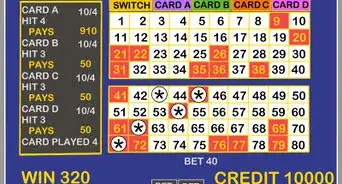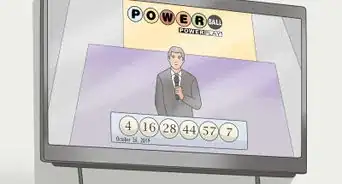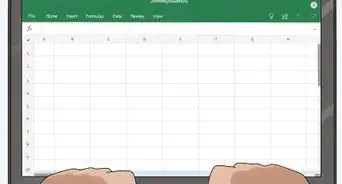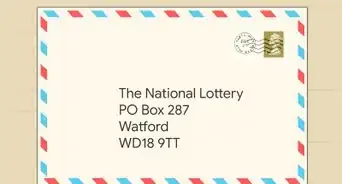X
wikiHow is a “wiki,” similar to Wikipedia, which means that many of our articles are co-written by multiple authors. To create this article, 37 people, some anonymous, worked to edit and improve it over time.
This article has been viewed 212,044 times.
Learn more...
Organizing a lottery pool is easy, but it's got to be customized based on who's involved, the regularity of play, the rules of the organization executing the lottery, federal and state tax laws, etc.
Steps
-
1Propose general rules of play to the potential participants. Modify and recirculate until you have agreement on these.[1]
-
2Include provisions for adding & deleting members, use names of the people added with a new contract each time a member is added or deleted.[2]Advertisement
-
3Fix the amount for buy-in. No one should have a greater share just because they had more cash in their wallet that day.
-
4Designate an administrator for the "pool" (a.k.a., group, syndicate)
-
5Designate person(s) responsible for collecting money.[3]
-
6State clearly who can purchase tickets for the group and who will be the primary person responsible for this.
-
7Require contact information be provided for every participant.
-
8Spell out how you will claim winnings. Be explicit about whether this is uniform for all winnings or varies by amount or taxable impact.[4]
-
9Get it in writing. Everyone who agrees to participate should sign your rules document. This becomes your contract.
-
10Provide copies of the winning tickets. Only scan or photocopy winning tickets. Retain the original, non-winning tickets for a specified length of time for audit purposes. Allow any member to the pool's ticket purchases by seeing the original, non-winning tickets along with the photocopied winning tickets. This will save the pool admin a lot of time and unnecessary photocopying.[5]
-
11Keep the names out of public record whenever possible. If you're planning to claim a jackpot, establish a blind trust or similar vehicle, then claim the winnings in the name of the trust. (This should be stated in the claims section of your rules).
Advertisement
Community Q&A
-
QuestionCan anyone in the group purchase extra tickets for themselves?
 Community AnswerYou should have a pool agreement, even among friends. One of the items in that agreement should specify what tickets are considered in the group and what tickets are personal. Most people make and distribute copies of the tickets to all the members of the pool. Any ticket not included in the distribution is not included in the pool. Make sure those copies cannot change. Large amounts of money can change people. Use one of the free Office Lottery Pool online systems that lock the numbers at a cutoff time.
Community AnswerYou should have a pool agreement, even among friends. One of the items in that agreement should specify what tickets are considered in the group and what tickets are personal. Most people make and distribute copies of the tickets to all the members of the pool. Any ticket not included in the distribution is not included in the pool. Make sure those copies cannot change. Large amounts of money can change people. Use one of the free Office Lottery Pool online systems that lock the numbers at a cutoff time. -
QuestionCan a person who has not played for a while get in the pool again to try to win the big one?
 Community AnswerIt depends on how you play. The way we play our office lottery pool is by forming a group of trusted players. Those trusted players play when they choose to by buying their own tickets and posting them. (We use a nice automated system, search "Office Lottery Pools" and pick one.) All the trusted players get notified and choose if they want to jump in. Some members only play when the lottery is above $300 million. It's totally up to you how you want to do things.
Community AnswerIt depends on how you play. The way we play our office lottery pool is by forming a group of trusted players. Those trusted players play when they choose to by buying their own tickets and posting them. (We use a nice automated system, search "Office Lottery Pools" and pick one.) All the trusted players get notified and choose if they want to jump in. Some members only play when the lottery is above $300 million. It's totally up to you how you want to do things. -
QuestionCan I set up a pool so that each participant gets a percentage of the ticket winnings?
 Don WinstonCommunity AnswerCheck out Lottery Jackpot Genie on the Play Store and App Store. The app takes care of a lot of the legal requirements on lottery pools.
Don WinstonCommunity AnswerCheck out Lottery Jackpot Genie on the Play Store and App Store. The app takes care of a lot of the legal requirements on lottery pools.
Advertisement
Warnings
- Make it clear in the rules that whomever is buying the tickets is NOT to buy their own for the same lottery game. It's OK if they want to play in other lotteries, or when they're not buying for the pool. This avoids a lot of domain issues in the event someone wins big separately from the pool.⧼thumbs_response⧽
- Check to make sure lottery pools are legal in your state and within your workplace policies.⧼thumbs_response⧽
Advertisement
References
- ↑ https://www.forbes.com/sites/robertpagliarini/2013/12/11/5-rules-if-you-play-an-office-lottery-pool/
- ↑ https://lotto.bclc.com/group-play.html
- ↑ https://www.syracuse.com/lottery/2016/01/powerball_jackpot_lottery_office_pool_rules.html
- ↑ https://oddculture.com/how-to-start-a-lottery-pool-and-why-you-should/
- ↑ https://www.huffpost.com/entry/office-lottery-rules-5-must-follow_b_4461402
About This Article
Advertisement





